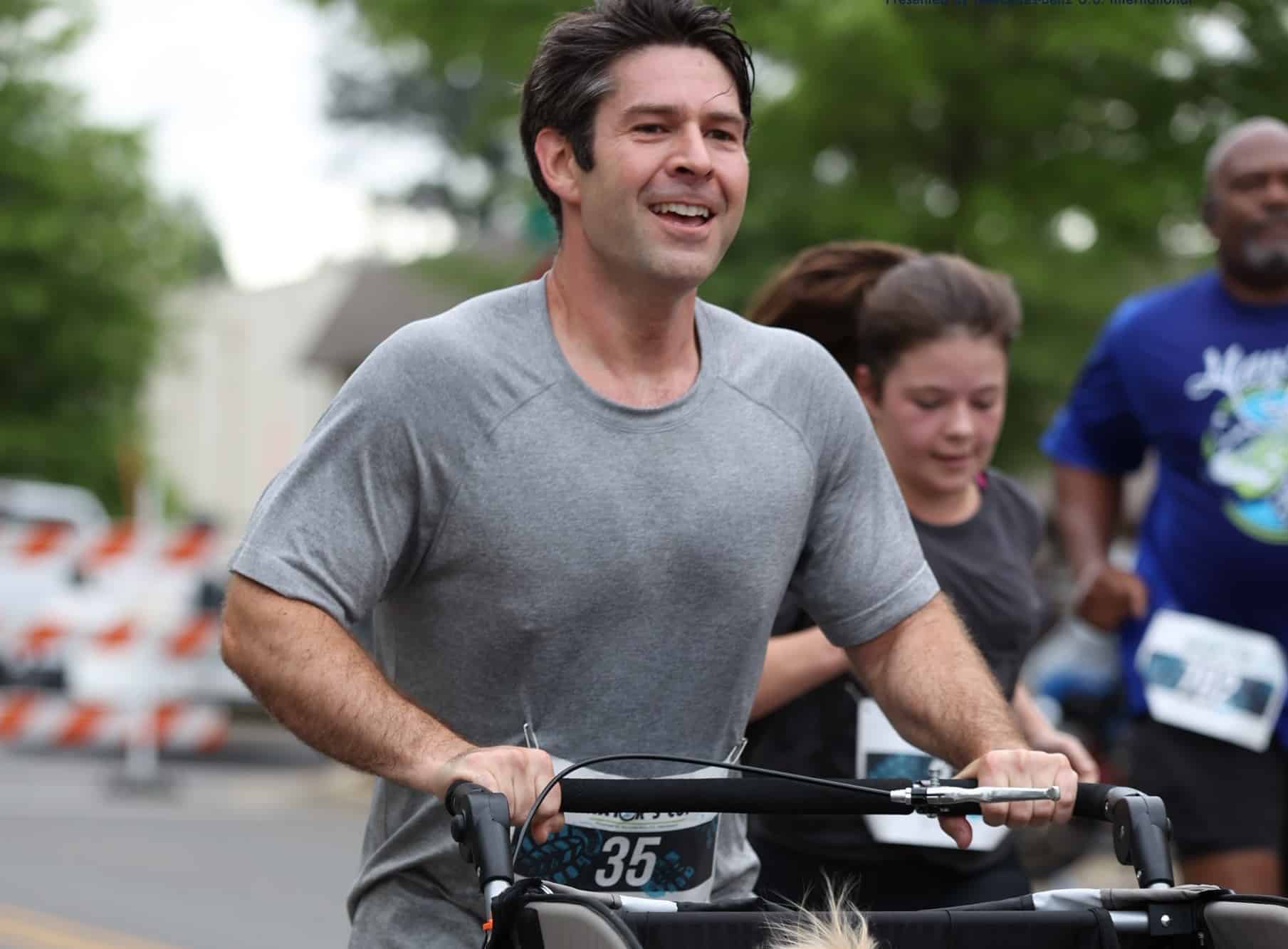12 Motivational Mantras for When the Running Gets Tough
Running is as much a mental challenge as it is a physical one. When the miles stretch out before you and your legs start to protest, it’s often your mind that needs the most coaching. That’s where the power of a good mantra comes in.
A mantra is a short, powerful phrase, often repeated to aid concentration and transform thought patterns. For runners, a motivational mantra can be the difference between hitting the wall and breaking through it.
When fatigue sets in and your spirits wane, a mantra can sharpen your focus and reignite your will to keep moving forward. It’s a tool used by runners of all levels, from beginners tackling their first mile to seasoned marathoners pushing through the dreaded ‘runner’s wall.’
Let’s explore some motivational mantras that you can call upon when the running gets tough, delving into how they can help, when to use them, and the stories behind their origins.
1. “Embrace the Suck”
Finding Strength in the Struggle
This blunt mantra is about acknowledging and accepting the discomfort that comes with pushing your limits. Instead of fighting against the tough parts of a run, embracing them can paradoxically make them more bearable and can even become a source of pride.
When to Use It: “Embrace the Suck” is perfect for those moments when you’re deep in a workout or race and everything feels hard. It’s for the times when you’re battling harsh weather, steep hills, or simply a bad day when running feels more like a chore than a pleasure.
Backstory: The phrase “Embrace the Suck” has its origins in military slang and has been adopted by athletes and fitness enthusiasts as a way to express the necessity of pushing through challenging or unpleasant situations. It’s a call to arms against the natural instinct to shy away from difficulty, encouraging a mindset that welcomes and overcomes adversity.
2. “One Step at a Time”
Staying Present to Maintain Pace
This mantra is a reminder to focus on the present moment and not to get overwhelmed by the distance that remains. It helps runners to break down the daunting task of a long run into manageable units, maintaining a steady pace and conserving energy.
When to Use It: This is particularly useful during long runs or races when the finish line seems too far away. It can also be helpful when you’re returning from an injury and need to build up your distance slowly.
3. “This is What I Trained For”
Validating Training and Preparation
This mantra serves as a reminder of all the hard work and preparation that has led up to this point. It validates the training and helps runners to trust in their preparation, which can be especially motivating when faced with tough conditions or during the final push in a race.
When to Use It: This is a powerful phrase to repeat during the starting line jitters, when facing unexpected adversity mid-race, or when you need to remind yourself of your capability during the hardest parts of the run.
Fun Fact: The concept of trusting in one’s training is a staple in sports psychology, emphasizing the importance of preparation and the confidence it should instill. Athletes are often encouraged to reflect on their training journey during moments of doubt, using the memory of their hard work as a source of strength.
4. “I Am Strong, I Am Capable”
Building Confidence and Inner Strength
This mantra is all about self-affirmation and reinforcing a positive self-image. It’s a powerful way to bolster self-belief and combat negative thoughts that can sabotage a run.
When to Use It: It’s most effective when you’re pushing your limits and starting to doubt your ability to continue. This could be during a tough speed workout, a steep hill climb, or the final push to the finish line.
Fun Fact: The concept of affirmations has its roots in the work of French psychologist Émile Coué who, in the early 20th century, encouraged people to repeat positive phrases to themselves as a means of self-improvement. His most famous affirmation, “Every day, in every way, I’m getting better and better,” is an early example of the kind of positive self-talk that can be channeled into a running mantra.
5. “Pain is Temporary, Pride is Forever”
Overcoming Discomfort for Lasting Satisfaction
This mantra serves as a reminder that the discomfort experienced during a run is fleeting, but the pride from overcoming it lasts much longer. It helps runners to endure temporary pain by focusing on the long-term rewards of their efforts, such as personal growth, improved health, and the achievement of running goals.
When to Use It: This mantra is particularly powerful during the toughest parts of a run or race—like when you hit a steep hill or when you’re deep into a marathon and every fiber of your being is telling you to stop. It’s also a good phrase to remember when you’re tempted to skip a training session.
Fun Fact: The phrase “Pain is temporary, pride is forever” is often attributed to Lance Armstrong’s book “It’s Not About the Bike,” although the concept has been a part of athletic training philosophy for much longer. The idea that the pain of hard work is fleeting while the results are long-lasting is a common theme in sports psychology and has been a source of inspiration for many athletes.
6. “Breathe In Strength, Breathe Out Weakness”
Harnessing the Power of Breath for Physical and Mental Fortitude
This mantra emphasizes the importance of controlled breathing, which can help manage physical stress and anxiety. By consciously breathing in strength and exhaling weakness, runners can maintain a rhythm that supports endurance and pace while also reinforcing a mindset of resilience and power.
When to Use It: Use this mantra when you’re feeling physically taxed and need to regain control of your breath, such as during an intense interval session or when trying to maintain a strong pace. It’s also useful for calming pre-race nerves or when you need to center your focus during a challenging portion of your run.
7. “Keep Pushing, Keep Moving”
Perseverance Through the Toughest Moments
This mantra is a rallying cry for continuous effort and forward momentum, no matter how slow or difficult that may feel. It encourages runners to keep putting one foot in front of the other, reinforcing the idea that movement—any movement—is progress.
When to Use It: This is a great mantra for those moments when you’re tempted to stop or walk during a run. It’s especially helpful during long runs or races when fatigue sets in, or during the last few minutes of a high-intensity workout when you’re struggling to maintain your pace.
8. “Run the Mile You’re In”
Concentrating on the Present to Manage Overwhelm
This mantra helps to compartmentalize a run into manageable segments, reducing the mental weight of the total distance. By focusing on the current mile, runners can give their full attention and energy to the task at hand, which can make a daunting run feel more achievable.
When to Use It: “Run the Mile You’re In” is particularly useful during long-distance runs or races when thinking about the entire course can be overwhelming. It can also help during speed workouts or tempo runs when maintaining focus on each segment is crucial for hitting target paces.
9. “I Run This Body”
Asserting Control Over Physical Challenges
This empowering phrase reminds runners that they are in control of their bodies and their runs, not the other way around. It’s a declaration of agency that can help overcome feelings of fatigue or weakness, and it encourages runners to listen to their bodies and push their limits responsibly.
When to Use It: This mantra is particularly effective when you start to feel like your body is dictating your run—when your legs are heavy, your breathing is labored, or when aches and pains are creeping in. It’s a reminder that you have the power to keep going, to slow down, or to push harder.
10. “Every Step is Progress”
Valuing Incremental Improvement
This mantra is a celebration of the incremental nature of progress in running. It serves as a reminder that each step forward is a step toward reaching your running goals, no matter how small it may seem. This perspective can help maintain a positive mindset, especially on days when progress feels slow or insignificant.
When to Use It: Use this mantra during recovery runs, after setbacks, or during long runs where the focus is more on completing the distance rather than on pace. It’s also helpful when returning from a break or injury, where getting back to previous levels of fitness can be frustrating.
Fun Fact: The concept of valuing small steps is a fundamental principle in goal-setting theory, which suggests that breaking down a large goal into smaller, more manageable tasks can lead to greater motivation and success. This mantra encapsulates that principle, applying it to the physical steps taken during a run.
11. “I’m Stronger Than I Think”
Unleashing Inner Potential
This mantra encourages runners to dig deep and find inner strength they may not realize they possess. It’s a reminder that the mind often underestimates the body’s capabilities, and by affirming their own strength, runners can push past perceived limits.
When to Use It: Ideal for use during the latter stages of a race or a particularly grueling workout when fatigue is telling you to give up. It’s also helpful when facing doubts about completing a new distance or a challenging course.
12. “Finish Strong”
Powering Through to the End
This mantra is a reminder to give it your all, right up to the finish line. It’s about not letting up or coasting to the end, but rather summoning all your remaining energy to finish as well as you possibly can.
When to Use It: “Finish Strong” is most effective in the final stages of a run or race, when you might be tempted to ease off as the finish line approaches. It can also be a helpful mental cue during the last set of a tough interval workout, or the final mile of a long training run.






